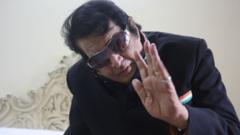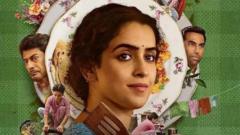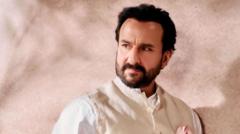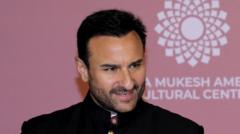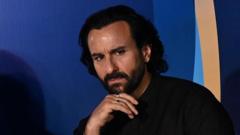Half a century after its initial release, "Sholay" has come back to captivate audiences with a special restored screening that showcases deleted scenes and an original ending, brilliantly adding to the legacy of this iconic Hindi film.
Sholay Returns: The Epic Bollywood Classic Debuts with a New Ending After 50 Years
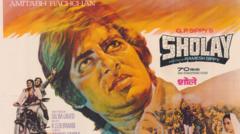
Sholay Returns: The Epic Bollywood Classic Debuts with a New Ending After 50 Years
Bollywood's legendary film "Sholay" makes a grand comeback with a restored version featuring an original ending at the Il Cinema Ritrovato Festival.
Fifty years after captivating audiences worldwide, the cinematic masterpiece "Sholay" is making its much-anticipated return to theaters, celebrating its remarkable history by premiering an uncut version with a new ending at the Il Cinema Ritrovato Festival in Bologna, Italy. This landmark event, taking place on Friday, will present the revered film in its fully restored format – complete with deleted scenes and the film's original conclusion, which had previously faced cuts due to sensor objections.
The screening is set in the picturesque Piazza Maggiore, known for its expansive outdoor cinema, offering a fitting backdrop for this momentous occasion. Directed by Ramesh Sippy and crafted by the talented writing duo Salim-Javed, "Sholay" features a stellar cast that includes Amitabh Bachchan, Dharmendra, Hema Malini, and the late Amjad Khan as the iconic villain Gabbar Singh. The film combines elements from Westerns and samurai narratives while maintaining its authentic Indian essence.
Originally released in 1975, "Sholay" took five uninterrupted years to finish its run at Mumbai's Minerva Theatre, being celebrated with accolades such as the “Film of the Millennium” by BBC India. Its gripping storytelling and memorable dialogues contributed to the film's off-screen cultural significance, with lines being quoted at weddings and referenced in public speeches.
Bachchan reflects on the film's journey, considering its success a pivotal moment in Indian cinema history. The restoration process, though challenging due to the disintegrating state of the original 70mm prints, has yielded a version that represents the most faithful depiction of "Sholay." In its original form, Gabbar Singh meets his demise at the hands of the Thakur Baldev Singh, with the narrative ultimately altered to address the censors' concerns over its portrayal of violence.
Although the film initially faced a bleak reception, slowly but surely reception turned positive after viewers began to appreciate its epic visuals and compelling storytelling. The introduction of dialogue records and the unforgettable characters led to its rise as a beloved classic that transcends generations. "Sholay" even found its way to Pakistani audiences decades later, solidifying its status as a timeless cultural phenomenon.
As the film marks its momentous return, the reason for its continued influence over five decades is encapsulated by Amitabh Bachchan: the timeless tale of good triumphing over evil and the deliverance of poetic justice woven into its three-hour narrative.




